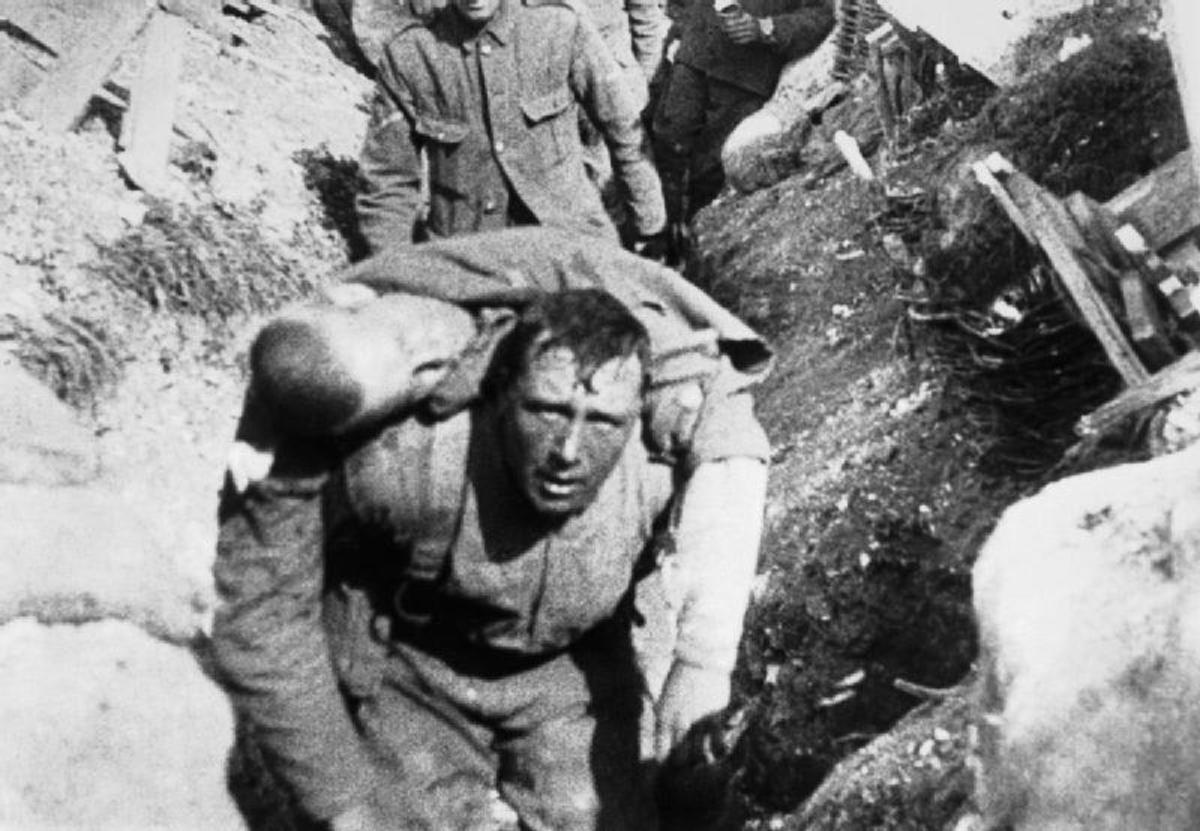How and Why History Can Matter
Check out the new, second edition of my book:
The Opening Essay of my American History Book
As the subtitle indicates, this is the opening essay of the new, second edition of my book, "Accessible American History: Connecting the Past to the Present." It describes what I am trying to accomplish with the book, along with my qualifications for writing it.The link to the right will take you to a hub that provides more information about the book, including links to where it can be purchased:
Writers of historical scholarship study primary source materials and use them to present original historical information. By that definition, this book is not a work of historical scholarship. It is instead a work of historical education, a type of book that I am the most qualified to write. Rather than focusing on original historical scholarship, I have chosen to be a community college instructor, a job that requires a different skill set. For while it is important for a teacher to develop and continually enhance his or her academic knowledge and skills, a good teacher, more than anything else, is a combination of a performer, organizer, coach, sage, critic, and enthusiast. A great scholar is not necessarily an effective teacher, and vice versa.
As a community college history professor, I have devoted my career to organizing and attempting to explain information produced by historians. I see myself as a “middleman” relaying this information to students who, by and large, are unlikely to spend much time reading in-depth historical scholarship. Let’s face it. Much of what is called historical research is produced almost exclusively for historians and hard-core history buffs. If historical information is to have any impact beyond this small community of history lovers, then we need effective teachers who can make this stuff interesting and relevant for the general public. This is where I fit in.
In the community college survey courses that I have taught for the past thirteen years, I try to help students learn the basics about all of the major events and trends in American history. There is therefore not enough class time to study any one topic in nitpicky detail. In fact, if students are overloaded with information, they tend to learn less than if you cover a smaller amount. Unfortunately, many people associate history with the memorization of a mass of random, disconnected facts. Because of experiences in past history courses where the material was not broken down in a manageable and meaningful way, many people have been cursed to forever hate history.
Being overwhelmed by random data, however, is only part of the problem. Even if the material is presented in an understandable way, many students will still see the study of history as pointless. Why do they have to hear stories and memorize facts about a bunch of dead people from the past? This is where the history teacher faces the most challenging and important task. We must help students to make some sort of a personal connection to the material, to try and imagine themselves in the situations faced by past human beings and recognize that in some ways, we all face similar experiences and challenges today. History never repeats itself completely, and we can never quite see the world through the eyes of people from other times and cultures, but there are general themes and patterns that seem to keep popping up. Also, there are certain fundamental traits that make up our human nature that remain consistent over time. People in the past, like today, enjoyed sex, tried to accumulate wealth, cared about their families, made stupid mistakes, and often feared change. By learning about the experiences of other individuals and societies trying to make their way in the world, we can learn lessons that will maybe make us a little wiser and more empathetic. In the end, history is the study of humankind’s collective memory. All of our knowledge, whether personal or collective, is based on past experience. As individuals, we know that red lights mean stop, jumping off of a cliff can be painful, and politicians occasionally lie because of things we have been told or have personally experienced in the past. So if we lose our memories, then it is difficult to function.
Some would say that this analogy between individual memory loss and historical ignorance works better in theory than in practice. Obviously, if you forget how to swim and fall into the water, then things will not end well. But does not knowing about some famous date, person, or event from hundreds of years ago have any impact on your life? I do agree, believe it or not, that many historical facts in themselves are irrelevant. Good historians and history teachers, however, are not primarily interested in compiling, memorizing, and presenting trivia. The goal is to draw more general, applicable meanings from all of the facts. And if history is done correctly, then a student of history will gain a better understanding of how the world used to be and of how it became what it is today. The only way, after all, to make sense of the present is to turn to the past.
Studying history can also have another practical benefit. To be an informed citizen, a certain amount of historical literacy is required. When reading newspapers, magazines, books, or web pages that seek to be informative, references to famous people and events of the past will inevitably be made. In most cases, the writer will not bother to define or describe well-known historical references. If the Cold War is mentioned in some kind of a publication that is directed to a reasonably informed audience, the writer will not say, “This, by the way, was an indirect and undeclared war between the Soviet Union and the United States.” The writer assumes that you know. Can you imagine a writer today bothering to stop and describe for readers the 9/11 attacks, Tiger Woods, Michael Jackson, or Hurricane Katrina? If an American has not spent several years in a coma, then he or she will probably know at least the basics about these events and people.
So a person without a certain amount of historical literacy will have a hard time getting the full meaning out of writings about history, politics, economics, current events, or many other subjects. History is unavoidably integrated into the study of virtually any subject, so historical illiteracy can contribute to a more general academic and cultural illiteracy. And if the ultimate success of our democracy rests with an informed voting public, historical and cultural illiteracy can be disastrous. So much of the battle over hearts and minds that we see in our country and world is a competition over which interpretations of the past will predominate. Whoever wins this competition will then have the greatest influence on our views of the present. In the course of this battle, history will often be twisted and misused to suit the needs of various powerful interests.
After almost twenty years of teaching history at various levels, I am more convinced today than ever of its relevance. People with basic historical literacy will not be so easily talked into questionable ideas. In a nutshell, studying history can make a person wiser. Too often, education is seen merely as a means of getting job skills. In recent years, as our country has faced some tough times, it is clear that our main problem is not a shortage of job skills. Instead, it is a shortage of wisdom. God help us if a college education degenerates into nothing more than a job-training program creating workers who have little interest in or understanding of the circumstances that have shaped our country and world.
So if you are interested in reading historical essays compiled by someone who has been out there in the community college trenches seeking to make American history manageable, meaningful, and relevant for the average 21st-century American, then you have come to the right place. Essentially, my essays on various history topics are lesson plans converted into written form. And in all my lesson plans, I make a continuing effort to show how the events of the past relate to the modern world. For if history teachers – and historians for that matter - make no effort to draw lessons from the data and to bring the facts to life, then we are merely engaged in a trivia exercise, helping students memorize enough to get their three units, forget the stuff immediately after the final, and move on to subjects that they see as actually relevant. Like journal articles and books rotting away in an old library, the hard work will not amount to much of anything.








